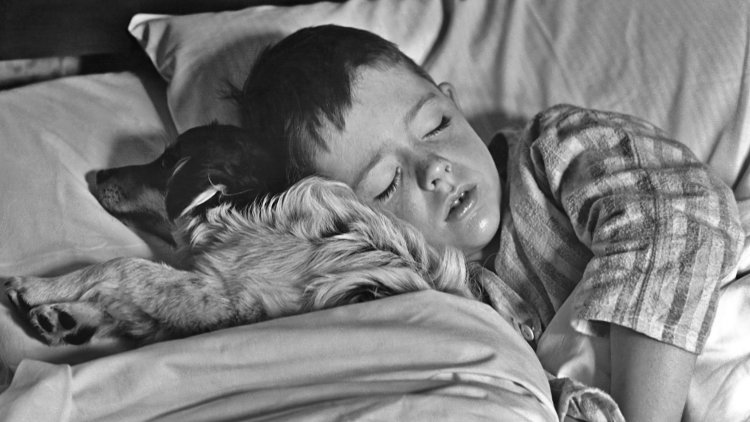How Good Sleep Became a Business
Sleep is a universal human need, but there’s no universal solution to struggling with it.

This is an edition of The Wonder Reader, a newsletter in which our editors recommend a set of stories to spark your curiosity and fill you with delight. Sign up here to get it every Saturday morning.
If you tell five people you have trouble sleeping, you’re likely to get suggestions for five items that you can purchase. “Sleep is going the way of other types of buyable ‘wellness,’” my colleague Megan Garber wrote last year.
As anyone who has tried sleep hacks or sleep gadgets knows, what works for you is a very personal thing. Sleep is a universal human need, but there’s no universal solution to struggling with it. And sometimes the problems behind bad sleep can’t be solved by a mask or an app at all. Today’s newsletter explores sleep hacks, old and new, and how they got so tied up in America’s consumer culture.
On Sleep Tools
Your Pillows Might Be Killing Your Neck
By Olga Khazan
After waking up with a searing pain that radiates down to my shoulders, I hunt for the culprit.
Why Everyone Should Sleep Alone
By Mallika Rao
On the virtues of splitting up for the night
The Protestant Sleep Ethic
By Megan Garber
A recent memoir considers how much we concede when we regard rest as a call to judgment.
Still Curious?
- How smartphones hurt sleep: Blue light makes the brain think it’s time to wake up, just as you’re getting ready for bed, Olga Khazan wrote in 2015.
- “I found the key to sleep”: “It’s my foot,” Amanda Mull wrote in 2019.
Other Diversions
- The invention that changed school forever
- America has an onion problem.
- “Dear James”: I love to drive fast, and I cannot stop.
P.S.
I recently asked readers to share a photo of something that sparks their sense of awe in the world. BD, 73, in Nederland, Colorado, sent this photo of “watching beautiful crows on a cold winter day.”
I’ll continue to feature your responses in the coming weeks.
— Isabel
What's Your Reaction?




















